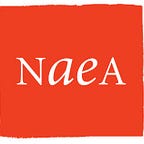Accountability Demands Transparency
Art + Museum Transparency
Accountability demands transparency, and transparency accountability. That belief is central to our work. We are a group of friends and colleagues in museums and arts and cultural organizations who began compiling our salary information in an open, editable Google spreadsheet in late May 2019. Like pretty much everyone else we know, we had long been commiserating about the entrenched problems in our organizations, chief among them low pay, unequal pay for equal work, the discrepancy between stagnant wages and rising living costs, and the public misconceptions about the conditions under which we work. But it was only when we finally became comfortable enough with one another, and fed up enough with our organizations, that we started sharing our own salaries and realizing that these problems are not isolated to our own departments or institutions. They are sector wide. How could we expect anything to change if we, employees with decades of experience between us, could not see the systemic nature of the problems ourselves? This seemed all the more dire because of the field’s growing desire for greater inclusion and diversity without making the necessary structural changes to do so, starting with a livable wage. Instead, we’ve watched American museums turn to grant-funded pipeline programs that aggressively funnel students into what we worry are unsustainable careers based on false promises. We decided that addressing the problems first required seeing them, so we created a Google spreadsheet, began by adding our own salaries, and invited our friends, who invited their friends and friends of friends, to add theirs. Accruing over 3,300 entires by the time we closed submissions at the end of December, the spreadsheet provides a broad overview of pay in arts and cultural organizations in the year 2019, primarily in the US, but also around the world.
We never believed that establishing pay transparency in the field would be enough on its own. Transparency is a necessary first step, but it cannot be the only step. The Salary Spreadsheet is a tool to hold our organizations accountable and to hold ourselves accountable. The process of updating and maintaining the spreadsheet has taught us the power of solidarity firsthand. When we tear down the culture of silence and share information with one another as museum, arts, and cultural workers, we can reframe the balance of power and start holding our institutions to their professed missions. These goals need to be recognized behind the scenes, in staffing, in order to build a diverse workforce that will truly underpin the values proclaimed in public-facing institutional messaging and programming. Our institutions must recognize our worth and actively demonstrate their values in compensation. Workers, too, need to pull together. Sharing our pay information with one another offers a proven avenue to begin addressing the pay disparities of those marginalized and historically underrepresented in the field. Many of us are also union-eligible and should take steps to unionize our workplaces and coordinate across institutions to make lasting gains. Rather than competing with one another for the limited, imperfect opportunities currently available in the field, we can and should work together to create a new future for our organizations. In doing so, we must constantly reevaluate our own perspectives and our own privileges. We must listen to one another with the spirit of learning. We must support one another. We can do this, but only through generous, open, and accountable solidarity.
Art + Museum Transparency (AMT)
Art + Museum Transparency (AMT) is a non-hierarchical US-based group of arts and museum workers. In May 2019, AMT produced an open, editable spreadsheet on Google Docs that contained members’ salaries at current and past positions, shared it on social networks and various listservs, and in response over 3,000 colleagues sharing their salaries too. AMT followed up with op-eds for Art News and Hyperallergic and a spreadsheet on internship compensation (or lack thereof), and a spreadsheet to support unionization efforts in arts and museum organizations. AMT’s Twitter feed @AMTransparency amplifies and agitates for better working conditions and solidarity among colleagues, nationally and internationally. Even if you are not a regular Twitter user and don’t want to participate in the online discussion, we encourage you to visit our Twitter feed for further resources for yourself and colleagues.
